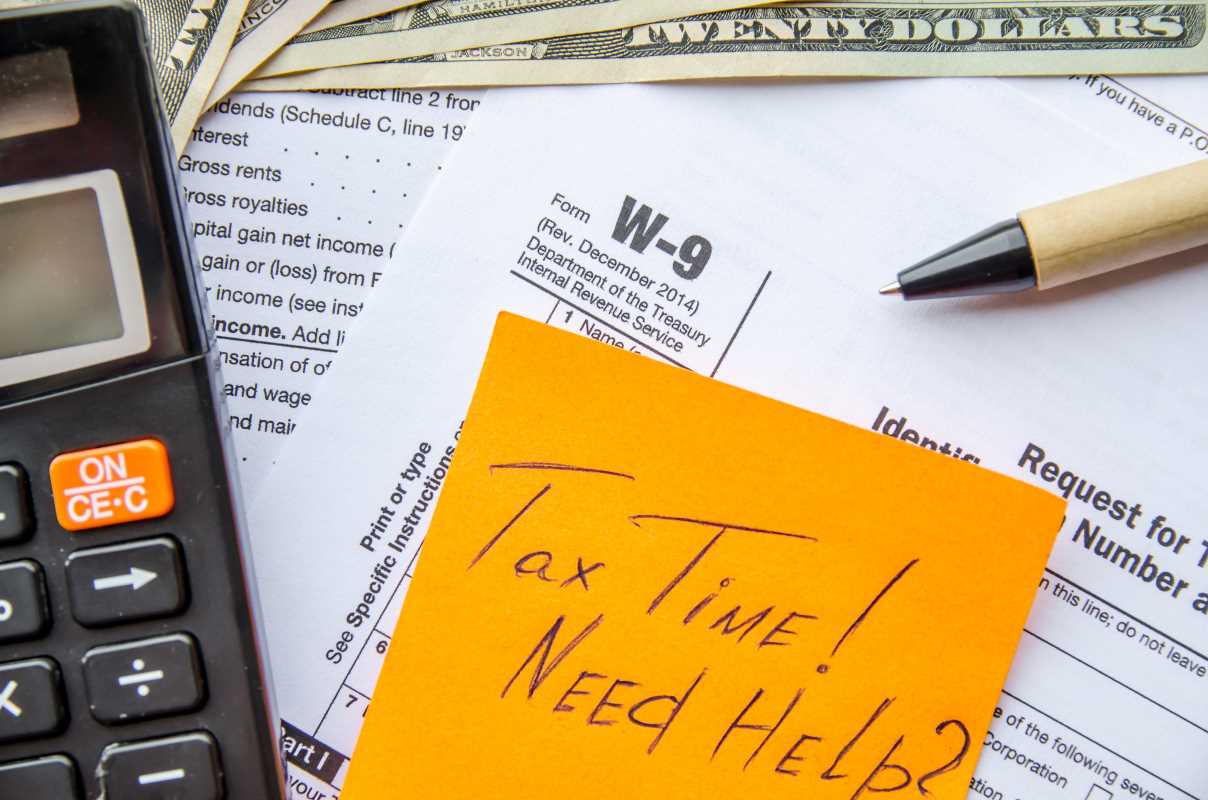Facing payments you weren’t prepared for is frustrating, especially if you’re already dealing with tight finances. Fortunately, there are ways to make things more manageable. With planning and a proactive approach, this year’s tax bill doesn’t have to throw you off course. Instead, you can use it as motivation to build a strategy for next year that saves you time, stress, and money.
We’re gonna walk you through how to tackle taxes owed this year and ways to set yourself up for smoother sailing next tax season. From payment options to adjusting your exemptions, these steps will give you the tools to feel more confident and in control.
Set Up a Repayment Plan
Paying your tax bill in one lump sum might feel impossible, but there are options to spread the cost out. The IRS offers payment plans, which can break your tax debt into smaller, more manageable monthly payments.
You can apply for a short-term or long-term payment plan directly through the IRS website or by phone. Short-term plans typically need to be paid off within 120 days, while longer-term plans allow more flexibility but may include a setup fee. This approach can help you avoid penalties like liens or bank account levies.
Make sure to factor these payments into your monthly budget. Treat your IRS installment like another bill, alongside rent and utilities, to stay on top of it without falling behind on other obligations. Automating these payments ensures that nothing slips through the cracks.
Adjust Your Exemptions
Making sure your tax withholding is correct prevents surprises next year. Too little tax withheld from your paycheck can lead to owing money during tax season, but adjusting your exemptions fixes this issue.
Exemptions determine how much your employer withheld from each paycheck for taxes. Updating your information on Form W-4 allows you to fine-tune this number based on how much you want taken out. Reducing the number of exemptions increases withholding, minimizing the risk of owing money later.
Look at last year’s tax return to see how much you owed and adjust accordingly. If you were short by $1,200, divide that amount by 12 months and increase your withholding by about $100 a month. This reduces the chance of another tax bill next year while spreading out the impact.
Open a Separate Savings Account
Setting aside money throughout the year can help you stay ready for tax season. A dedicated savings account labeled specifically for taxes is a great way to create a buffer.
Each payday, deposit a small percentage of your income into this account. Even starting with 5-10% makes a difference when you’re consistent. Treat it as non-negotiable, just like paying your bills, to keep it growing.
Having this account means that, even on the off chance you owe taxes again, you’ve got funds ready to cover it. Any extra money saved can be used for other goals, like building an emergency fund or paying down debt.
Use Your Tax Refund Strategically
If you expect a refund next year, consider applying it directly toward this year’s tax balance. The IRS allows you to apply all or part of your refund to your tax debt, reducing what you owe without needing to take any extra steps.
To make this happen, file your taxes early next year and choose to allocate your refund toward existing IRS debts. Doing so reduces stress and may even cut down interest or penalties that can add up while you’re repaying.
Break Payments Into Weekly Amounts
Breaking your tax payments into smaller weekly amounts can pay back the debt faster and may seem more manageable. Don’t wait on the monthly due date. Set aside what you can manage weekly to chip away at the total.
So, if you owe $500 and set aside $25 a week, you’ll finish paying it off in 20 weeks. Weekly progress can feel more empowering and keeps momentum going, especially when the total balance seems too high.
Using tools like envelopes or a budgeting app, like You Need a Budget or Copilot Money, adds accountability. Knowing exactly where you stand helps you stay motivated to meet your goal.
Track Your Write-Off Opportunities
Understanding deductions and tax credits reduces how much you owe next year. Deductions lower taxable income, while credits directly reduce your tax bill. Being aware of these opportunities now helps you plan better throughout the year.
Keep receipts for anything that might apply, like work-related expenses, medical costs, or charitable donations. Those who run side gigs or freelance can also deduct things like office supplies, internet costs, or vehicle mileage.
Tracking these expenses year-round avoids scrambling during tax season. Apps or simple spreadsheets make this process easier and save time when filing.
Stay on Top of Estimated Taxes
Independent contractors, freelancers, or anyone with an irregular income often owe estimated taxes throughout the year. These quarterly payments help you avoid a big bill later by spreading out the cost.
Calculate estimated taxes based on your income and set reminders for quarterly deadlines. Payments are due in April, June, September, and January, making them easy to forget without a system in place.
Using an online calculator or working with a tax professional ensures your payments cover what you owe. Staying ahead of these deadlines minimizes stress and potential penalties.
Consider Automated Payments
Setting up automated tax payments simplifies the process. There are various ways you can set up automatic payments including through the IRS, your bank, or a financial app. Paying in smaller, automated chunks throughout the year helps avoid the shock of a large year-end bill. Even starting with $20-$50 a week builds a habit and gets you closer to your goal.
Use an Accountant or Tax Professional
Tax experts offer valuable insights that make managing your tax situation easier. Working with a CPA helps you understand potential refund opportunities, adjust your exemptions correctly, and find ways to reduce your bill.
Hiring a professional involves upfront costs, but avoiding errors or penalties can save money in the long run. Look for someone experienced in helping clients with situations similar to yours for tailored advice.
It might be tempting to go to a larger chain like H&R Block but try a local professional. They may have a bit better advice and more time they can spend with you during your meeting. Local CPAs also have a reputation to protect so there may be fewer mistakes.
 (Image via
(Image via





